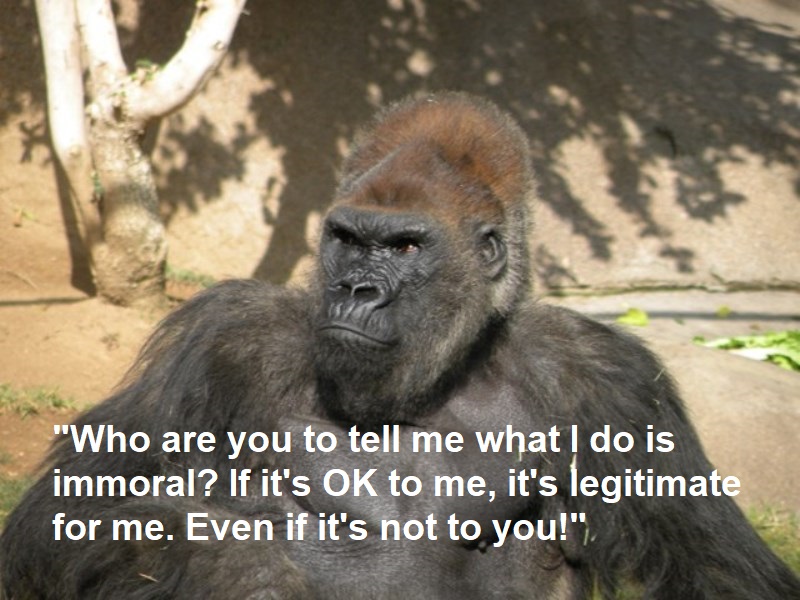 Part Five: “The Clearest Demonstration That Moral Relativism Is a Bogus Ideology”
Part Five: “The Clearest Demonstration That Moral Relativism Is a Bogus Ideology”
Regardless of how popular moral relativism has become in Western culture, no one lives it out consistently. It’s easy to endorse moral relativism in the ivory towers of academia or sitting around at a party where it’s safe and no one gets hurt—where advocates can discuss it without committing their lives to it. But bring this philosophy into the real world—where it affects people personally—and suddenly commitment to moral relativism evaporates. It’s easy to say:
- “A woman has a right to do what she wants with her own body.”
- “A homosexual lifestyle is just as legitimate as a heterosexual lifestyle. Why not marry someone of the same sex?”
- “Pornography is guaranteed by freedom of speech. It doesn’t hurt anyone.”
- “So what if people want to live together before they marry.”
If we apply the same relativistic principle behind these statements to other areas of life, relativism is suddenly unacceptable. It will not be tolerated. For example, virtually every civilized person condemns child abuse, rape, cannibalism, slavery, and human sacrifice in the name of moral or religious freedom. Yet if relativism is a valid philosophy of life, all such behaviors must be sanctioned.
To be internally consistent—a fundamental requirement for any worldview to be legitimate—there would be no laws to condemn these atrocities or any other sick and hideous forms of behavior. All deviant behaviors would be sanctioned in a truly relativistic society. If not, the disciples of moral relativism are hypocrites because they are unwilling to live consistently with their alleged beliefs. An unlivable worldview is a false worldview.
To get around this dilemma, it’s argued that cultures establish ethics, not individuals. Each culture is free to nurture their own brands of ethics; thus, moral relativism still functions. People must obey the “laws of the land” as dictated by their respective cultures.
This evasion doesn’t change anything. For one thing, it contradicts relativism. When a culture sets standards that apply to everyone within its control, it is making laws. Laws reflect absolutism, not relativism. Moral relativism at a cultural level would mean murdering millions of Jews during World War II was ethical because Nazi Germany endorsed it. Likewise, terrorist attacks sponsored by radical Islam could not be condemned on religious grounds (religious pluralism).
The bottom line is, there are limits to human conduct that apply to everyone. People may talk the talk of moral relativism and religious pluralism, but in most other areas of life, live according to absolute standards. In the real world, no sane person or civilized culture will tolerate the ultimate consequences of moral relativism carried to its logical conclusion. There are laws civilized societies must impose and demand that all people obey. This is absolutism, not relativism!©
Next week we’ll explore whether or not apologetics focusing on feelings can be effective.